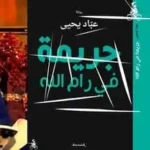This paper traces the problematic relationship between statistics and social research in the Occupied Palestinian Territories (OPT) since 1967. It aims to reveal the colonial impact of statistics in the OPT and its transformations and to examine how Palestinian social researchers have dealt with the statistical data issued by the colonial apparatus and the nature of their critical stance towards it. The research focuses on the post-Oslo period and the establishment of the Palestinian Central Bureau of Statistics (PCBS). The establishment of the PCBS opened up the way for the production of social research based on its data, without the development of a critical awareness of the colonial impact of these data, their role in fragmenting Palestinian society and classifying it, managing and controlling Palestinians, and providing data with epistemic authority that researchers reproduce in their research and build on.
The paper focuses on the uncritical acceptance of PCBS data and the lack of criticism of its foundations. It also devotes a section to the most important statistical survey in the transitional phase between Israeli Civil Administration surveys and PCBS surveys. This survey was conducted by the Norwegian Institute of Applied Social Science (FAFO), which – according to the paper’s assumption – represented the most important expression of the role of statistics in fragmenting Palestinian society and dividing it as a unit of analysis and study. It also consolidated the Israeli geographical and legal fragmentation of Palestinian society, and paved the way for the establishment of the PCBS as a more precise tool for managing and controlling Palestinians in the West Bank and Gaza Strip, and providing information and data that they reproduce to shape their knowledge about themselves.
With an interest in the complex nature of the Occupied Palestinian Territories, which are under the control of two overlapping authorities that exercise management, control, and regulation of the place in a unique way, the study of the role of statistics in establishing this situation is an essential contribution to understanding the impact of this composition and overlap on Palestinian society and the social knowledge that it produces about itself.





